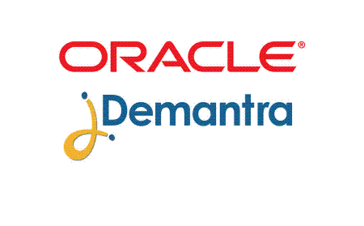Description

StockIQ

Oracle Demantra
Comprehensive Overview: StockIQ vs Oracle Demantra
Sure, let's delve into an overview of StockIQ and Oracle Demantra, focusing on their primary functions, target markets, market presence, and key differentiators.
a) Primary Functions and Target Markets
StockIQ:
-
Primary Functions:
- StockIQ is primarily a supply chain planning and inventory optimization software. It provides demand forecasting, inventory management, replenishment planning, and sales and operations planning. StockIQ aims to optimize inventory levels and improve supply chain efficiency.
- It includes features like demand management, supply planning, vendor managed inventory, and promotional planning.
-
Target Markets:
- StockIQ mainly targets small to medium-sized businesses, particularly those in industries like wholesale distribution, manufacturing, and retail. Its user-friendly interface and tailored solutions appeal to companies looking for a cost-effective and efficient way to handle inventory and supply chain planning without the complexity of larger enterprise systems.
Oracle Demantra:
-
Primary Functions:
- Oracle Demantra is part of Oracle’s broader supply chain management suite. It focuses on demand management, sales and operations planning, trade promotion optimization, and integrated business planning.
- The software leverages advanced analytics and machine learning to provide actionable insights for demand forecasting and supply chain optimization.
-
Target Markets:
- Oracle Demantra targets large enterprises across various industries, including manufacturing, consumer goods, and distribution. Its scalability and integration capabilities make it suitable for organizations with complex supply chain needs and a significant global presence.
b) Market Share and User Base
StockIQ:
- StockIQ caters to a niche market, primarily small to medium enterprises. Due to its focus on this segment, it has a smaller market share compared to global enterprise solutions but maintains a loyal customer base among its target industries.
- The user base is growing as more SMEs seek out affordable, efficient solutions tailored to their specific supply chain needs.
Oracle Demantra:
- Oracle, as a company, holds a significant share of the enterprise software market, and Demantra benefits from this reach and reputation. It is widely used by large corporations who require comprehensive, integrated supply chain solutions.
- The user base is extensive, consisting of many Fortune 500 companies and large-scale enterprises that require robust, scalable solutions.
c) Key Differentiating Factors
-
Complexity and Scalability:
- StockIQ is designed for simplicity and ease of use, with less emphasis on complex integrations. It’s ideal for smaller companies that don’t need the extensive feature set of larger systems.
- Oracle Demantra offers high scalability and a comprehensive feature set suitable for large enterprises. It is integrated with Oracle’s vast ecosystem, providing extensive capabilities for those needing complex, multi-layered planning solutions.
-
Integration and Ecosystem:
- StockIQ can integrate with various ERP systems, but its main focus is on providing an all-in-one solution that is straightforward to implement.
- Oracle Demantra benefits from seamless integration with other Oracle applications, which is a significant advantage for businesses already using Oracle’s suite of products.
-
Implementation and Cost:
- StockIQ tends to have a quicker implementation timeframe and is more cost-effective, making it a preferred choice for businesses looking for a rapid deployment and lower total cost of ownership.
- Oracle Demantra comes with higher implementation costs and complexity, reflecting its extensive capabilities and suitability for larger organizations requiring detailed customizations and integrations.
In summary, StockIQ and Oracle Demantra serve different segments of the market with their unique strengths. StockIQ is optimized for SMEs focusing on affordability and efficiency, while Oracle Demantra is more suited for large enterprises needing comprehensive, integrated supply chain management solutions.
Contact Info

Year founded :
2015
Not Available
Not Available
Not Available
http://www.linkedin.com/company/stockiq

Year founded :
Not Available
Not Available
Not Available
Not Available
Not Available
Feature Similarity Breakdown: StockIQ, Oracle Demantra
StockIQ and Oracle Demantra are both advanced software solutions designed for demand forecasting, supply chain planning, and inventory optimization. Despite serving similar purposes, each has its own set of features and capabilities. Here’s a breakdown of their feature similarities and differences:
a) Core Features in Common:
-
Demand Forecasting:
- Both platforms offer robust demand forecasting tools that utilize historical data and statistical algorithms to predict future demand.
-
Inventory Management:
- Each provides comprehensive inventory management capabilities, allowing for the optimization of stock levels to balance supply and demand effectively.
-
Supply Chain Planning:
- Support for end-to-end supply chain planning, including replenishment planning and optimization.
-
Data Integration:
- Capabilities to integrate with various ERP systems and other data sources to consolidate data for more effective analysis.
-
Analytics and Reporting:
- Both offer analytics and reporting features, enabling users to generate reports to inform decision-making processes.
b) User Interface Comparison:
-
StockIQ:
- StockIQ typically offers a user-friendly and intuitive interface, designed to streamline workflow processes and improve user productivity. Its dashboards are customizable, allowing users to tailor the UI according to their specific needs.
-
Oracle Demantra:
- Oracle Demantra’s interface is comprehensive and integrates well with other Oracle products through Oracle's cloud platform. While powerful, some users find it can have a steeper learning curve compared to more streamlined solutions.
c) Unique Features:
-
StockIQ Unique Features:
- Simplicity and Usability: StockIQ is often praised for its ease of use and straightforward implementation process, making it accessible for businesses that require quick deployment.
- Focused Solutions for Small to Mid-sized Enterprises: While not exclusive to smaller companies, StockIQ's simplicity makes it particularly appealing to SMBs seeking cost-effective, yet powerful solutions.
-
Oracle Demantra Unique Features:
- Advanced Analytical Tools: Oracle Demantra offers highly sophisticated analytical tools that benefit organizations with complex planning needs.
- Integration with Oracle’s Suite of Products: Provides seamless integration with Oracle’s other offerings, beneficial for enterprises already utilizing Oracle systems.
- Collaborative Features: Includes capabilities for collaborative demand planning, where multiple stakeholders can input their data and insights to improve forecast accuracy.
In conclusion, while both StockIQ and Oracle Demantra share foundational features that address core demands in demand forecasting and supply chain optimization, they offer different strengths that appeal to different organizational needs. StockIQ offers a user-friendly and efficient solution, particularly good for SMBs, whereas Oracle Demantra provides extensive analytical and collaborative tools that can fully leverage the capabilities of Oracle's ecosystem.
Features

Not Available

Not Available
Best Fit Use Cases: StockIQ, Oracle Demantra
Both StockIQ and Oracle Demantra are solutions designed to address supply chain and demand planning needs, but they cater to different types of businesses and scenarios.
StockIQ
a) Best Fit Use Cases:
- Small to Mid-Sized Enterprises (SMEs): StockIQ is particularly well-suited for small to mid-sized businesses due to its focus on usability and essential features without the complexity that typically accompanies larger enterprise solutions.
- Inventory Management: Companies that have a significant focus on inventory management and are looking for solutions that offer specialization in this area can benefit from StockIQ.
- Distribution-Centric Businesses: Firms operating primarily in distribution services, wholesale, or retail sectors can leverage StockIQ for its strengths in demand forecasting, inventory optimization, and replenishment planning.
- Simpler Implementation Needs: Businesses looking for a quick, straightforward implementation process might find StockIQ advantageous due to its less complex and more direct deployment compared to some larger-scale solutions.
Oracle Demantra
b) Preferred Use Cases:
- Large Enterprises: Oracle Demantra is designed to meet the complex needs of large global enterprises that require highly sophisticated demand planning and sales & operations planning (S&OP) capabilities.
- Comprehensive Demand Management: Businesses intending to integrate demand planning deeply with other Oracle products or ERP systems to create a comprehensive end-to-end supply chain management solution.
- Industries with Complex Demand Patterns: Sectors such as consumer goods, high tech, and pharmaceuticals, where understanding intricate demand patterns and collaboration across various departments (marketing, finance, production) is critical.
- Scenario Planning and Analytics: Companies that need advanced analytics, scenario planning, and a holistic view of demand and supply dynamics are better served with Oracle Demantra, which offers robust simulation and analysis tools.
Industry Verticals and Company Sizes
StockIQ:
- Industry Verticals: Primarily targeted towards industries like wholesale distribution, retail, and manufacturing, where inventory visibility and service levels are essential.
- Company Sizes: Best suited for small to medium-sized businesses, StockIQ offers scalability to grow with the business without the overhead costs associated with larger solutions.
Oracle Demantra:
- Industry Verticals: Serves a broad array of industries, including consumer packaged goods, pharmaceuticals, retail, automotive, and technology, all of which may require intricate demand planning and forecasting solutions.
- Company Sizes: Typically targets large enterprises due to its comprehensive feature set designed for complex operations. It's also applicable to upper mid-sized companies with sophisticated supply chain and operational demands.
Conclusion
Choosing between StockIQ and Oracle Demantra depends largely on a company’s size, the complexity of their supply chain needs, and their industry vertical. StockIQ offers a more straightforward, accessible solution for smaller firms focused on inventory management, while Oracle Demantra provides a more intricate and comprehensive suite for larger companies with extensive forecasting, demand planning, and integration needs.
Pricing

Pricing Not Available

Pricing Not Available
Metrics History
Metrics History
Comparing undefined across companies
Conclusion & Final Verdict: StockIQ vs Oracle Demantra
When comparing StockIQ and Oracle Demantra, both supply chain management tools provide distinct features and benefits that cater to different company needs and environments. Below is a summary of the analysis to help users decide which product offers the best overall value, along with pros and cons, and recommendations for potential buyers.
Conclusion and Final Verdict
a) Best Overall Value
Considering all factors such as cost, ease of use, scalability, features, and integration capabilities, StockIQ generally offers the best overall value for small to mid-sized companies looking for a cost-effective and user-friendly solution. Conversely, Oracle Demantra is an excellent choice for larger enterprises that require a robust, highly integrated system within Oracle's ecosystem.
b) Pros and Cons
StockIQ:
- Pros:
- User-friendly interface with straightforward implementation.
- Cost-effective for small to mid-sized businesses.
- Strong demand planning and inventory management capabilities.
- Offers good customer support and flexibility.
- Cons:
- Limited scalability for very large enterprises.
- May lack some advanced features present in top-tier systems like Oracle Demantra.
- Integration challenges with non-common ERP systems.
Oracle Demantra:
-
Pros:
- Comprehensive solution with advanced forecasting and analytical features.
- Seamless integration with Oracle ERP and other Oracle products.
- Highly scalable and suitable for large enterprises.
- Strong support for collaborative and global supply chain planning.
-
Cons:
- Higher cost, making it less accessible for smaller businesses.
- Complex implementation and often requires significant customization.
- Steeper learning curve, which can necessitate more extensive training.
c) Recommendations
-
For Small to Mid-Sized Companies:
- Opt for StockIQ if seeking an affordable, easy-to-use platform with solid core features. It will meet the essential needs without requiring an extensive budget or lengthy implementation phase.
-
For Large Enterprises:
- Consider Oracle Demantra if you require comprehensive features with robust integration into an existing Oracle ecosystem. Be prepared for a higher upfront investment and longer onboarding.
-
Industry-Specific Needs:
- Evaluate specific industry requirements. If advanced analytical and forecasting prowess is critical, Oracle Demantra might be justified even for smaller segments if the budget permits.
-
Existing Ecosystems:
- Depending on existing IT infrastructure, companies heavily invested in Oracle products might lean towards Demantra for seamless integration, whereas others might benefit from StockIQ's flexibility with varied systems.
-
Trial and Support:
- Take advantage of trials and consult with product representatives to get direct insights into how each solution can address specific organizational challenges. Assess post-implementation support services, as they are crucial for long-term system effectiveness.
Each organization must weigh these considerations based on its unique operational requirements, budgetary constraints, and long-term strategic goals.
Add to compare



